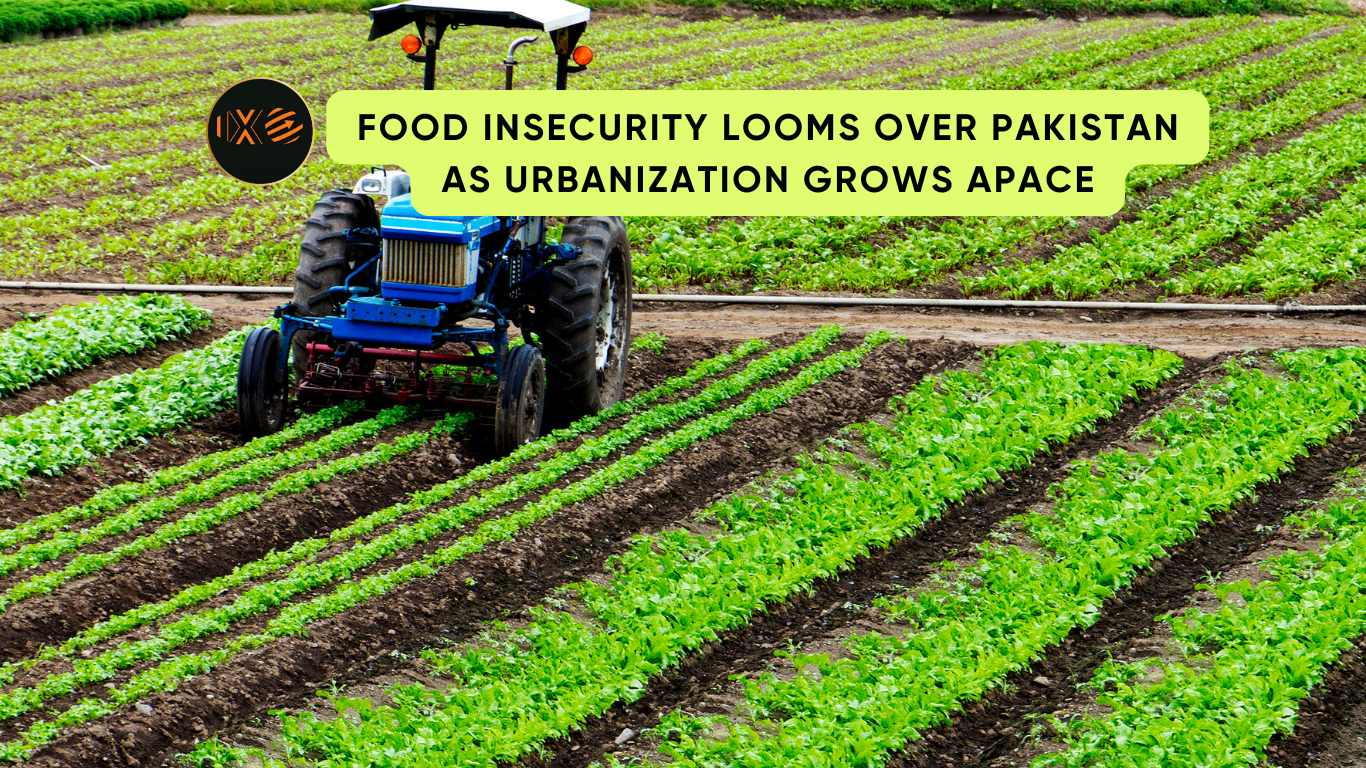Food insecurity is becoming a pressing issue in Pakistan as urbanization accelerates. The agricultural workforce feels the impact of this transformation, which threatens the country’s food security. While urbanization opens up new business opportunities, it poses significant risks to the agricultural sector.
The Impact of Urbanization on Agriculture
Urbanization is gradually consuming fertile agricultural land. Dr. Liaquat, a faculty member at a government university, argues that this trend jeopardizes farmers’ livelihoods. He notes that many farmers are unaware of the long-term consequences of selling their land for real estate development.
Loss of Agricultural Land
According to Dr. Liaquat, land is vital to every farmer’s identity. However, the real estate sector capitalizes on their naivety by offering attractive prices for agricultural land. “All that glitters is not gold,” he warns. Many farmers who sold their lands have ended up with barren plots, neither cultivated nor developed into housing.
Migration and Food Scarcity
As agricultural land dwindles, many workers are forced to migrate to urban areas in search of employment. This shift creates additional pressure on urban infrastructures, leading to increased food insecurity.
Government Recommendations | Food Insecurity in Pakistan
Dr. Liaquat suggests that the government should impose a ban on converting agricultural land into housing colonies. He believes that non-productive lands should be designated for such developments. The conversion of fertile land into housing and industrial areas is counterproductive for Pakistan and its people.
The Urbanization Dilemma
Economist Muhammad Arif acknowledges the need for housing but stresses that unplanned urbanization drives a wedge between rural and urban areas. He highlights that the loss of skilled agricultural workers due to this trend could diminish agricultural productivity.
Youth Disinterest in Agriculture
Arif notes a growing disinterest among the youth in pursuing agricultural careers, despite familial pressure. Many young people are seeking better-paying jobs in cities or considering emigration. This shift threatens the agricultural workforce and casts a gloomy outlook on the sector.
Addressing Urbanization’s Challenges | Food Insecurity in Pakistan
To counter the adverse effects of urbanization, Arif advocates for job creation in rural areas. Developing projects that provide employment opportunities can ease the burden on urban centers and enhance the rural economy.
Urban Agriculture as a Solution
Progressive farmer Amjad Ali suggests that urban agriculture could mitigate the negative impacts of urbanization. By cultivating food within urban environments, farmers can meet local market demands while preserving their agricultural lands.
Empowering Farmers
Amjad emphasizes the importance of empowering farmers, particularly the youth, to adopt sustainable farming practices. He believes that private sector involvement is crucial in protecting agricultural lands from urban encroachment.
Training and Knowledge Transfer
To help farmers maintain their lands, Amjad calls for training programs that impart modern farming techniques. When farmers are equipped with the right knowledge, they are less likely to sell their valuable land. A financially stable farming community can better resist the allure of lucrative land offers.
Collaboration for Rural Development
Both the government and the private sector must collaborate to launch projects aimed at rural development and infrastructure improvement. By doing so, farmers can stay connected to urban markets and benefit from emerging business opportunities.
Conclusion | Food Insecurity in Pakistan
As urbanization continues to expand in Pakistan, food insecurity looms large. The agricultural sector faces challenges that require immediate attention. By addressing urbanization’s impact on agricultural land and empowering farmers, Pakistan can work towards a more sustainable and secure food future.
Islamabad Exchange Company: Your Trusted Partner in Currency Exchange
Islamabad Exchange Company is your go-to choice for currency exchange in Islamabad. We serve a wide range of sectors, including E9, E11, F11, F-10, F-8, F-7, F-6, F-5, G-5, G-6, G-7, G-8, G-9, G-10, G-11, G-13, H-8, H-9, I-8, I-9, and I-10. Our services also extend to the Blue Area, Rawalpindi, and Peshawar.
We prioritize customer satisfaction and ensure a seamless experience for all your currency transactions. Our services range from traditional money changers to modern foreign exchange solutions. If you’re looking for money exchange near you, our branches in the Blue Area and F-10 are conveniently located. We offer competitive rates for a variety of currencies, including USD to PKR, GBP to PKR, EUR to PKR, SAR to PKR, AED to PKR, AUD to PKR, CAD to PKR, Thai Baht to PKR, Yuan to PKR, Yen to PKR, and Lira to PKR.
- Fast, secure currency exchange at competitive rates
- Real-time rates at https://isbexchangeco.com/
- Smooth, transparent, and reliable service
- Phone: 051-2809751-52, 051-2105491
- Mobile: 0330-1112227
Quick Links
- Home: Learn more about our services and get real-time updates on exchange rates.
- About Us: Discover our mission and commitment to providing secure and competitive currency exchange services.
- Contact: Reach out to us with any queries or for assistance with your currency exchange needs.
- Blog: Stay updated with our latest articles and tips on currency exchange and financial management.



